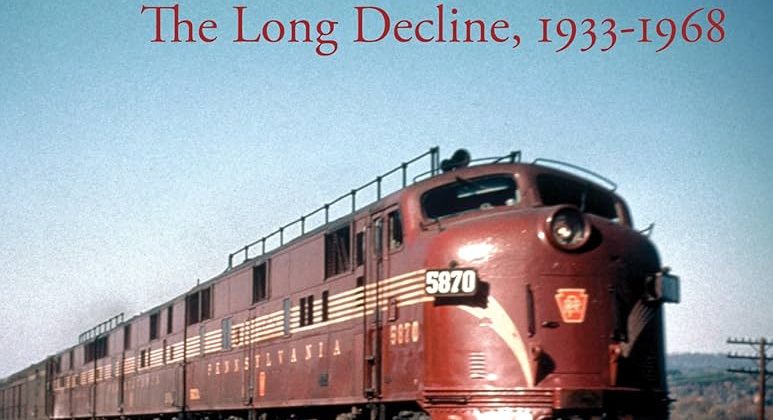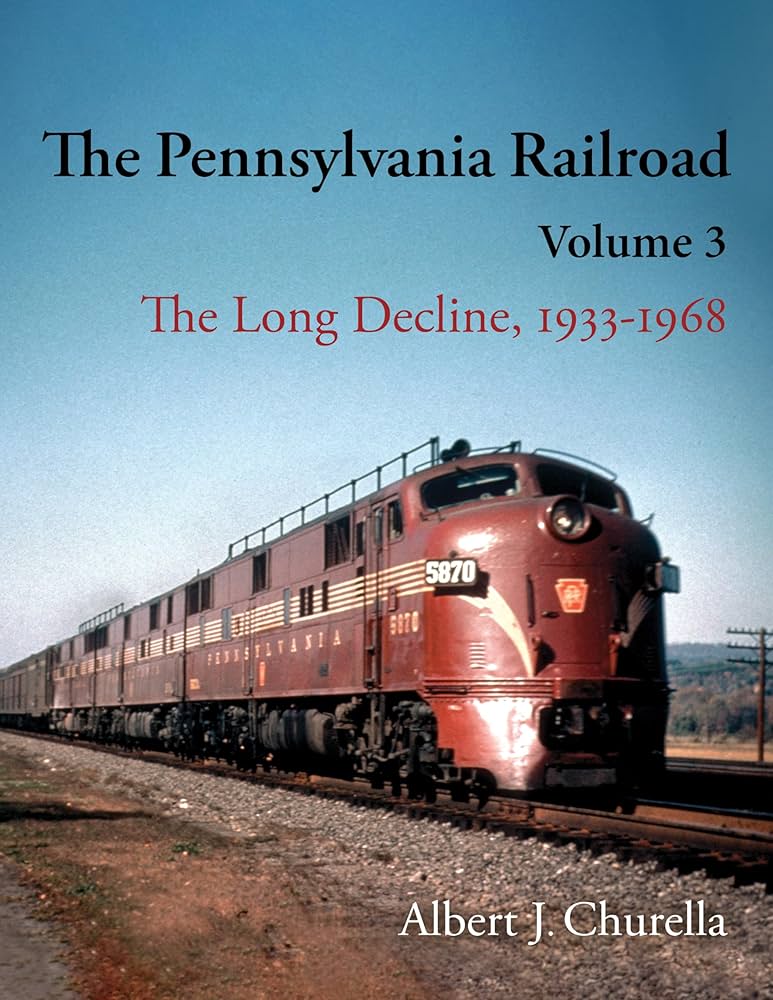

Albert J. Churella is Professor of History at Kennesaw State University. This interview is based on his new book, The Pennsylvania Railroad: The Long Decline, 1933–1968 (Indiana University Press, 2024).
JF: What led you to write The Pennsylvania Railroad?
AC: Most of my career opportunities have come from unexpected places, and the Pennsylvania Railroad trilogy fits that pattern. In 2003, I was contacted by a colleague, Mark Rose at Florida Atlantic University. Mark was the co-editor of a book series at the University of Pennsylvania Press, and he was looking for someone who could write a one-volume, 200,000-word history of the Pennsylvania Railroad. Given the subject of my first book (From Steam to Diesel: Managerial Customs and Organizational Capabilities in the Twentieth-Century American Locomotive Industry) he thought that I might be the person for the job. Neither one of us realized that the project would take more than twenty years to complete, or that it would result in a three-volume, 1.6-million word study of the PRR’s history.
JF: In 2 sentences, what is the argument of The Pennsylvania Railroad?
AC: Business corporations – even those as large and as powerful as the Pennsylvania Railroad – do not exist in a vacuum, nor are their executives in full control of the organizations they manage. Rather, those corporations are embedded in a complex system of public policies, reflecting the will of the American people, that shape and constrain the behavior of businesses and their managers.
JF: Why do we need to read The Pennsylvania Railroad?
AC: Big organizations matter, and the Pennsylvania Railroad was about as big as they come. Between 1881 and 1901, it was the largest business corporation in the world. In 1968, the PRR was part of what was then the largest merger in American history. Two years later, its successor company (Penn Central) succumbed to a record-setting bankruptcy. For more than a century, the Pennsylvania Railroad was indispensable to the transportation of people and products in the most heavily populated and economically vibrant region of the United States. The company was in the forefront of the development of managerial practices; cutting-edge technologies; new initiatives in labor relations and public relations; interaction with all levels of government; and the employment of women, African Americans, and Hispanics. In that sense, the history of the Pennsylvania Railroad is the story of America and its people.
JF: Why and when did you become an American historian?
AC: I have an undergraduate degree in economics (Haverford College, class of 1986) that has provided a superb foundation for my career as a business historian. Even before I completed my degree, however, I argued with my advisor about his assertion that that all economic behavior was rational. I was further disheartened by the arrival of early personal computers and the concomitant use of quantitative methods, which moved the field away from its historical roots in economic philosophy. Accordingly, I decided to work with words rather than numbers, and to focus on the widespread irrationality of human behavior – making history an obvious choice.
JF: What is your next project?
AC: I am co-authoring a book on Conrail, in collaboration with Jonathan Broder, adjunct professor of law at Temple University Law School and retired chief legal officer of Conrail. Formed in 1976, Conrail was the successor to the Penn Central and several other bankrupt railroads in the Northeast. Thanks to a combination of investments by the federal government and a skilled and dedicated team of managers, Conrail revitalized the railroad industry. Of greater significance, Conrail ushered in a new era of business-government relations that marked the ascendency of neoliberal economic policies.
JF: Thanks, Albert!